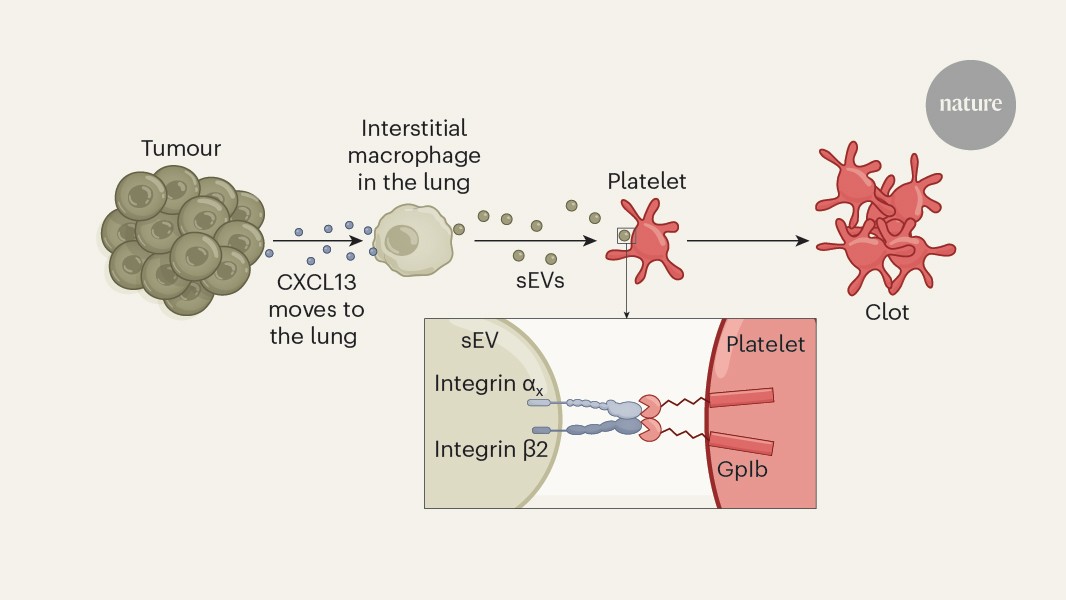
"Recent research has identified small extracellular vesicles (sEVs) released by the lungs as a source of pro-clotting signals in cancer patients, suggesting a predictive method for clot risk."
"The study emphasizes the potential for a blood-based molecule to accurately assess which cancer patients are at high risk of blood clots, enabling targeted therapeutic interventions."
Blood clots present a significant risk for cancer patients, particularly as the disease progresses. A recent study has pinpointed small extracellular vesicles (sEVs) released by the lungs as a strong pro-clotting signal in these individuals. This discovery presents a new therapeutic target that could enable better assessment of clot risk in cancer patients. By identifying those at high risk for thrombosis, healthcare providers could administer anti-clotting drugs more effectively, potentially reducing mortality associated with cancer-related blood clots.
Read at Nature
Unable to calculate read time
Collection
[
|
...
]